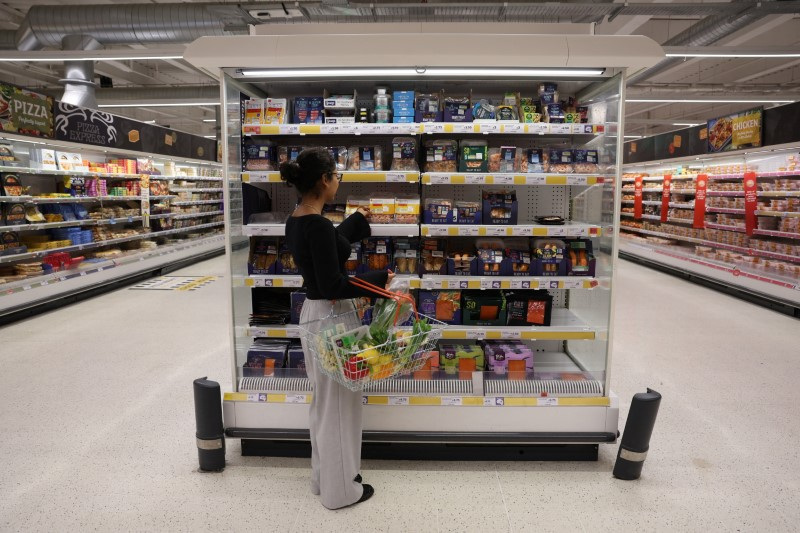By David Milliken
LONDON (Reuters) -British retail sales edged up in July, boosted in part by extra spending due to the men's Euros soccer championship, official figures showed on Friday, after an unusually cool and wet June had kept shoppers away and weighed on broader economic growth.
Retail sales volumes rose 0.5% in July after falling 0.9% in June and were 1.4% greater than a year earlier, the Office for National Statistics said.
Both rises were in line with forecasts from economists polled by Reuters and there was little market reaction.
"We expect further increases in disposable income to feed through to overall spending," said Rob Wood, chief UK economist at Pantheon Macroeconomics, pointing to a gradual upward trend in annual sales growth.
The squeeze on British consumers from high inflation in 2022 and 2023 is beginning to ease, though not enough to keep the Conservatives from a historic loss to the opposition Labour Party in last month's election.
Inflation was back at its 2% target in May and June, and only slightly above that in July, while wage growth exceeded inflation by the highest margin since mid-2021 in the second quarter of the year.
The Bank of England cut interest rates from a 16-year high this month and Britain's longest-running consumer confidence measure rose to its highest in nearly three years as shoppers became more willing to make big purchases.
Even so, sales volumes in July were still 0.8% lower than in February 2020, the last month before COVID-19 lockdowns started, and recent reports from UK retailers have been mixed.
Clothing retailer Next reported better-than-expected second-quarter sales and raised its full-year profit outlook.
By contrast, luxury brand Burberry warned on profit and other UK retailers have highlighted continuing low consumer confidence around more discretionary purchases.
Sales volumes at clothing stores fell 0.6% in July and were 4.0% lower than a year earlier, the ONS said.
Department stores and sports equipment shops did better, boosted by the Euros and discounting, Liz McKeown, the ONS' director of economic statistics, said.
Prices in shops were 0.9% higher than a year earlier, the smallest increase since March 2021.

Hot weather in the second half of July also helped offset cool and wet weather earlier in the British summer, which had led to weak July data from the British Retail Consortium and the Confederation of British Industry.
"Although retail sales haven't come roaring back as the industry hoped, retailers should be confident of a strong end to summer trading now that warmer weather has finally arrived," said Deann Evans, a managing director at online retail platform Shopify (NYSE:SHOP).